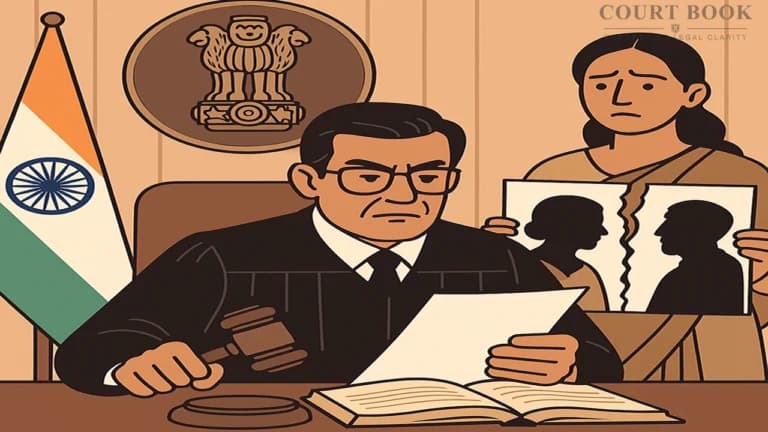In a judgment pronounced on October 17, 2025, the Madras High Court brought closure to a long-running family dispute over inheritance. Justice Dr. A.D. Maria Clete, hearing A. Devaraj vs. Vasanthi (S.A. No. 251 of 2014), upheld the validity of a Will executed by a mother in favour of her son, dismissing the daughter's challenge alleging forgery, illness-induced incapacity, and unfair exclusion. The ruling reinstated the trial court’s decree and set aside the order of the First Appellate Court, which had previously sided with the daughter.
Background
The case revolved around property belonging to late Papathi, who, under a 1990 partition deed, became the sole owner of certain assets. After her death in December 2002, her daughter, Vasanthi, claimed an equal share under Indian Succession Act 1925. Her brother, A. Devaraj, opposed the claim, citing an unregistered Will allegedly executed by their mother a week before her death-on December 15, 2002-bequeathing everything to him.
The trial court initially upheld the Will as valid, finding it properly executed and attested. However, in 2013, the Principal District Court of Erode reversed that finding, declaring the Will suspicious and favouring intestate succession. This led to Devaraj’s second appeal before the High Court.
Court's Observations
Justice Clete examined the testimonies of all attesting witnesses and the scribe. Though there were slight inconsistencies-like whether the mother sat on a chair or lay on a cot, or whether she wore a ring-the judge found these differences natural after several years.
The bench observed,
"Minor variations in witnesses’ recollection after eight years cannot undermine otherwise credible testimony. Such inconsistencies often affirm truthfulness rather than destroy it."
The judge rejected the argument that a widow wearing a ring indicated fabrication, noting that customs evolve and cannot dictate legal conclusions. Similarly, the Court ruled that the plaintiff's failure to provide additional sample signatures to the Forensic Department prevented an expert opinion-but this did not cast doubt on the Will.
On the issue of the mother's health, the Court found no proof that cancer treatment impaired her mental faculties.
"Mere illness or proximity to death does not equate to incapacity," the order noted. The Court added that many valid wills are executed in extremis-during one’s final days-and remain legally sound if the testator is of sound mind.
Family Dynamics and Legal Reasoning
The daughter argued that her exclusion from the Will was unnatural and indicated malice. However, Devaraj maintained that Vasanthi had already received her share in an earlier family partition concerning their father's property. The Court agreed, citing her own admissions about a panchayat settlement years earlier.
Justice Clete remarked that it was not uncommon, especially in traditional families, for married daughters who had already been provided for to be left out of subsequent wills. "Exclusion by itself is not suspicion," the judgment emphasized, adding that testamentary freedom allows parents to decide how to distribute their assets.
On procedural grounds, the judge pointed out that the daughter had known of the Will’s existence for years but took no legal steps to contest it until much later. Her silence, the Court held, indicated acquiescence.
The High Court also dismissed concerns about the delay in changing revenue records (patta), clarifying that such mutations are for fiscal purposes and not proof of ownership or title.
Citing Precedents
Justice Clete drew distinctions between this case and several earlier rulings cited by the plaintiff, including P. Jayajothi v. J. Rajathi Ammal (2019) and Kavitha Kanwar v. Pamela Mehta (2021). In those cases, the Wills were invalidated due to missing attestation or proven concealment. But here, the attesting witnesses were consistent and credible, and the Will was never hidden.
"The Court must look at the entire picture," the judgment noted, echoing the Supreme Court's stance that suspicious circumstances must be real and substantial, not speculative or sentimental.
Decision
After a detailed review of the evidence and legal precedents, the Madras High Court ruled in favour of A. Devaraj. The Court restored the trial court’s decree validating the Will and dismissed the daughter’s claims.
Justice Clete concluded:
"The Will stands duly proved. The alleged suspicious circumstances are neither real nor substantial. The judgment and decree of the First Appellate Court are hereby set aside. The Second Appeal is allowed."
No costs were imposed, considering the familial relationship between the parties.
With that, a 15-year legal tussle between brother and sister came to a quiet end-one that reflected not just legal reasoning but also a glimpse into the evolving interplay of family, tradition, and testamentary freedom in Indian households.
Case Title: A. Devaraj vs. Vasanthi
Case Number: S.A. No. 251 of 2014
Date of Judgment: 17 October 2025
Advocates Appearing:
- For Appellant: Mr. N. Manoharan, for M/s. P. Veena & Mr. D. Chitra Maragatham, Advocates.
- For Respondent: Mr. Naveen Kumar Murthi, Advocate.















